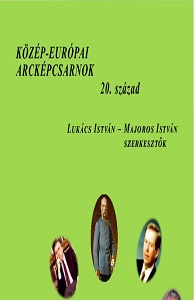Karel Kramář
Karel Kramář
Author(s): Andor Mészáros
Subject(s): Cultural history, Ethnohistory, Political history, 19th Century, Interwar Period (1920 - 1939)
Published by: Eötvös Loránd Tudományegyetem, Új-és Jelenkori Egyetemes Történeti Tanszék
Keywords: Austro–Hungarian Monarchy; Czechoslovakia; Realistic Party; Young Czech Party; Russofil Pan–Slavism;
Summary/Abstract: Karel Kramář (1860–1937) was one of the most significant politicians of the turn of the 19th and 20th Century and in the first decade of the first Czechoslovak Republic. He was the founder of the Czech Realistic Party with Masaryk and a Czech representative of the Imperial Council in the dualistic Monarchy, one of the most influential politicians of the young Czech party in Vienna. Kramář as the supporter of the Czech Russofil Pan–Slav movement considered useful the Russian and Balkan alliance in the foreign policy of the Austro–Hungarian Monarchy and established the Neo–Slav Movement in 1908 for the harmonization of Slav political inter-ests. During the First World War he participated in the Czechoslovak movement and was sentenced to death for treason, was released by am-nesty. Kramář was elected the first prime minister of the republic after 1918, the founding of the first Czechoslovak Republic and also led the Czechoslovak delegation on the Versailles Peace Talks, but in the mid–twenties he gradually lost his political influence.Keywords: Austro–Hungarian Monarchy; Czechoslovakia; Realistic Party; Young Czech Party; Russofil Pan–Slavism;
Book: Közép-európai arcképcsarnok. 20. század
- Page Range: 293-304
- Page Count: 12
- Publication Year: 2018
- Language: Hungarian
- Content File-PDF

